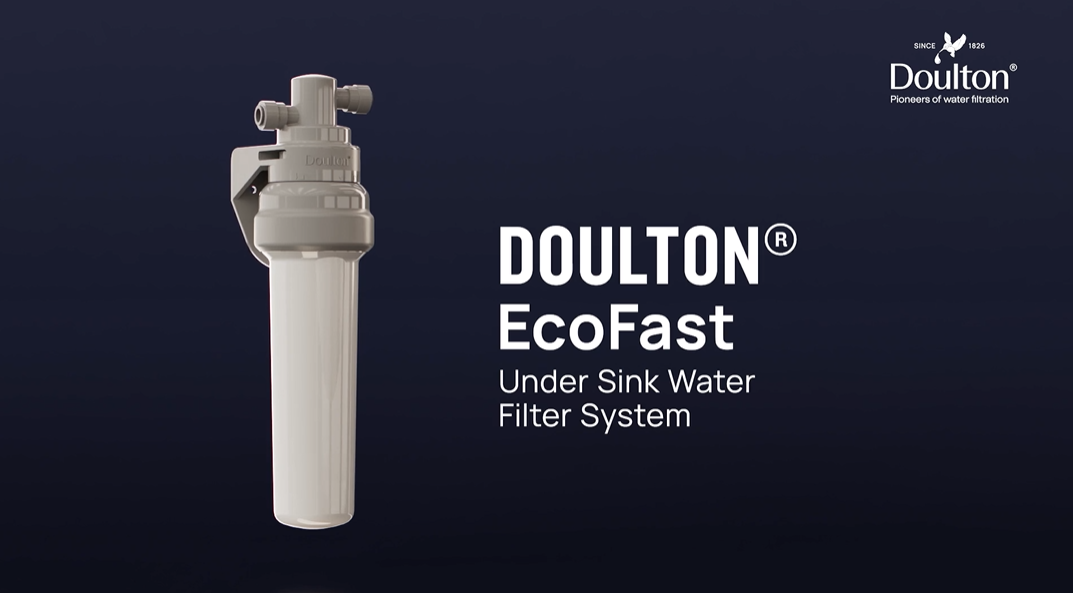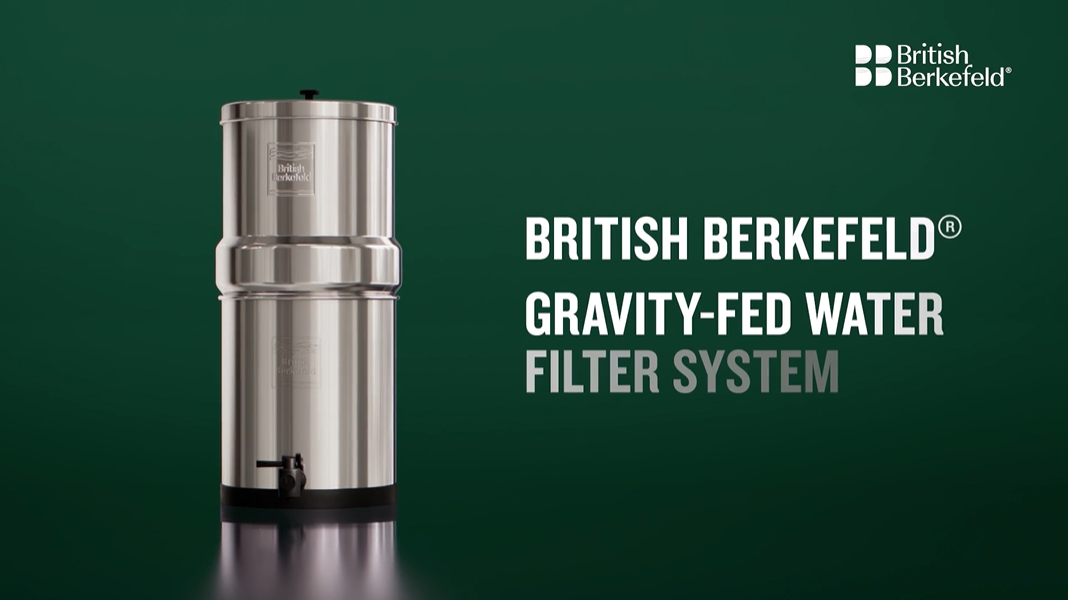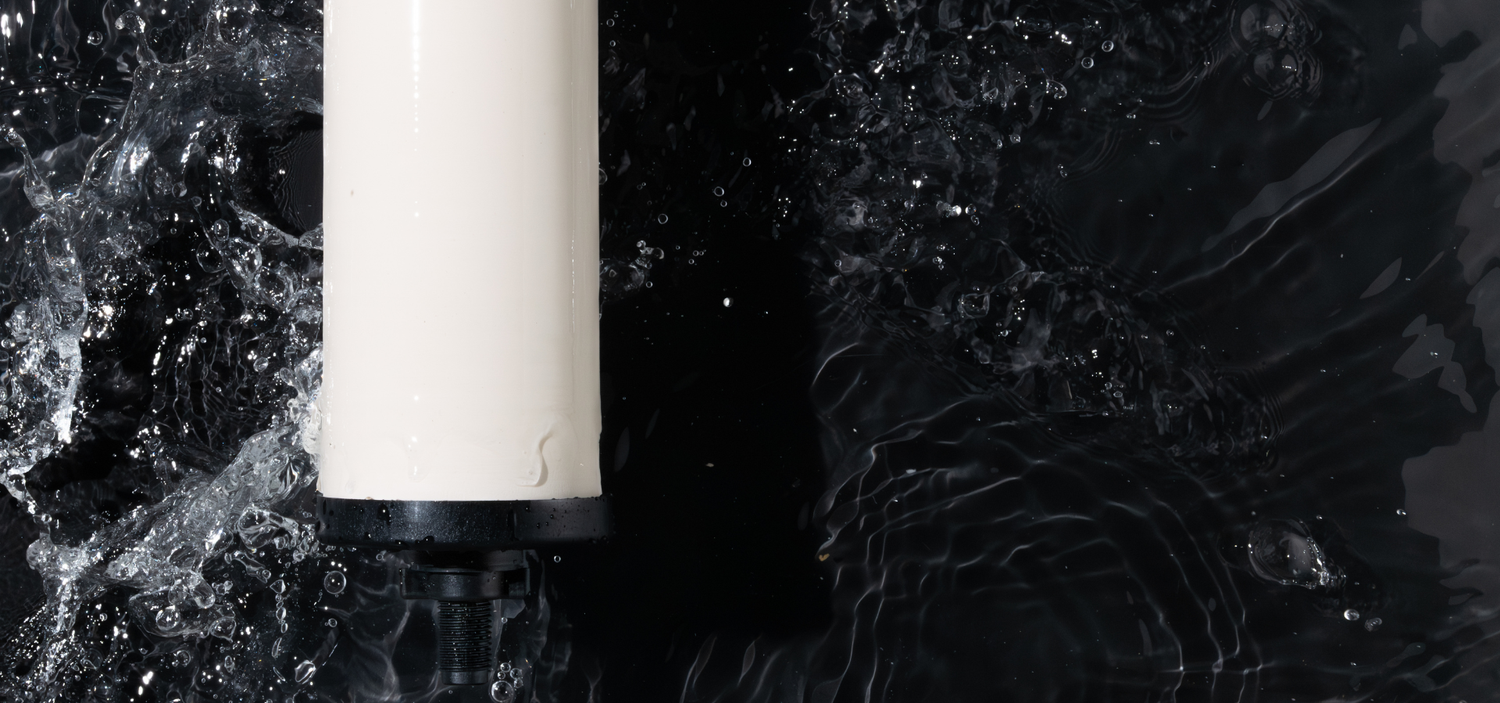For almost 200 years, Doulton Water Filters have been refining the craft of creating exceptional water filter systems for households around the globe. At the heart of all our systems is a ceramic water filter.
But what is the science behind the ceramic?
Let's take a deep dive...

What is a ceramic water filter?
A ceramic water filter uses microporous ceramic material to reduce contaminants in your water. Many also feature a carbon core, which further improves filtration and enhances the taste of your drinking water.
Ceramic filters often have a distinctive shape that is carefully designed for optimal water flow and effective filtration, as well as to suit the slip-casting manufacturing process. This unique form not only supports high performance but also allows the filter to be released from its mold easily, minimising breakages and material waste.
Made from natural materials, ceramic filters offer a more sustainable way to filter water at home versus plastic based filter systems. They are commonly used in gravity systems, under sink setups, and tap-mounted countertop filters.

How do ceramic water filters work?
Ceramic water filters work by using the natural power of microscopic pores to deliver cleaner, fresher-tasting water straight from your tap. Think of the ceramic a little bit like a fine 3D sieve with a convoluted path through the wall. Any particles that are too large to fit through the pores or navigate the twisted path connecting them, will simply get stuck and not pass into your drinking water.
The activated carbon core in Doulton and British Berkefeld systems helps to improve the taste and odour of your water by absorbing contaminants such as Chlorine - the culprit of that 'swimming pool' like smell and taste. Alongside this, activated carbon also reduces contaminants such as pesticides, pharmaceuticals and some heavy metals.
To find out more about what ceramic filters reduce, you can explore our test data page.

How do ceramic water filters work in under sink systems?
Under sink water filter systems that use ceramic filters use a porous ceramic candle to physically block impurities as water passes through. The fine pores provide mechanical filtration, while an inner layer of activated carbon helps to improve the taste of your drinking water. Doulton under sink systems deliver cleaner water through a dedicated tap to retain water pressure in your main hot and cold taps.

How do ceramic water filters work in gravity systems?
Gravity water filters work by pulling water down from a top chamber through to a bottom chamber, via filters. when you choose ceramic water filters in your gravity system, the contact time with the filter helps to further reduce a range of contaminants. Watch the video to find out more.
How long do ceramic water filters last?
Like all water filter systems and cartridges, ceramic water filters do need to be replaced over time. We recommend changing the ceramic water filters from Doulton every 6 months, based on average usage and performance. By replacing your water filter frequently you can ensure that the reduction of contaminants is as effective as possible and maintains the quality of your drinking water.
Doulton's filters can be cleaned between changes, which will further help to maintain their lifespan and effectiveness. You can find a guide on how to clean your filters on our helpful videos page.

Where to buy ceramic water filters?
Here at Doulton, of course! Based here in the UK, we ship to over 100 countries worldwide. All of our filters hold the Made in Britain badge, and you have a range of options to choose from.
If you're looking for a water filter that can be used in any location and doesn't require and plumbing or electricity, the British Berkefeld Stainless Steel Gravity System is your ideal solution. Whereas, if you're seeking a more permanent solution in the heart of your home, an under sink water filter system would be more suitable. This allows you to enjoy refreshing filtered water on tap, whenever you need it.
If you're a little unsure which water filter system is best for you, you can also take our water quiz to find out! You will be directed to buy the best water filter for your needs, after answering a few simple questions.



















